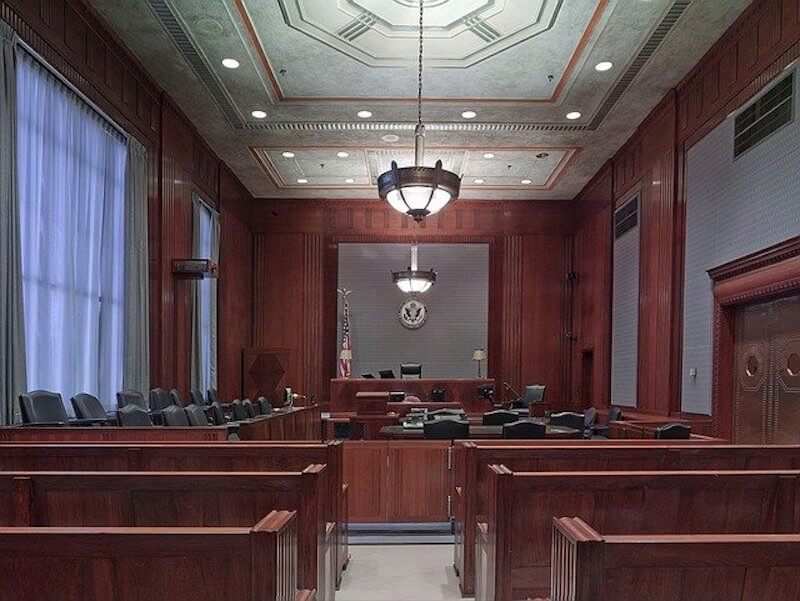Case Theory and Theme
The Foundation for Everything Else in a Trial
 A Legal Eagle Develops an Excellent Case Theory
A Legal Eagle Develops an Excellent Case TheoryIn this episode I help the mock trial participant understand the basic building blocks of case theory and theme. Most of the discussion concerns development of the fact, legal, and persuasive parts of the case to form the succinct statement of the whole pitch.
Subscribe the show on your favorite podcast platform, for example, Spotify.
Mock Trial Flight School Episode 3
Case Theory and Theme - The Foundation for Everything Else in a Trial
Mock Trial Flight School Episode 3 Show Notes
Case Theory
A theory of the case comprises three interrelated parts:
- the LEGAL theory, that is the law that entitles you to the relief you are seeking
- the FACTUAL theory, that is the story or facts that satisfy your legal theory, and
- the PERSUASIVE theory, that is why you should win as a matter of fairness and justice.
Theme
On the other hand, the case THEME comprises a one sentence distillation of your case theory that appeals to the jurors’ moral values. The theme might use words to paint a metaphorical picture of the case or may directly appeal to a commonly held belief system. The theme of the O.J. Simpson criminal defense provides a famous example: “If the glove does not fit, you must acquit.” This simple theme summarized the defense case theory that the facts did not add up to prove Simpson’s guilty beyond a reasonable doubt.
Note - Avoid the Evil "Turn"
Make sure the theme cannot be flipped by the opposing side. For example, a justice theme might appeal to both the prosecution and the defense in a criminal case.
Part 1: LEGAL THEORY
Each side of a case for trial develops a LEGAL theory by doing the necessary legal research to determine all possible law governing your case. The attorneys pull out the most important legal issues, usually the controverted elements, and incorporates those into the overall case theory. The fact theory should support the legal theory.
Part 2: FACTUAL THEORY
The attorney, working with witnesses, develops a FACTUAL theory by determining what happened. The following tools and strategies help with development of the fact theory:
- Chronologies
- Proof Charts
- Identifying facts as opposed to conclusions
- Thinking about what inferences can be drawn from those facts–both pro and con
- Identifying hard facts versus soft facts
- Identifying those factual questions that are in dispute and determining how to develop further information about the disputed facts
- Thinking about the facts as a story or movie script–what should/would happen in this situation
- Thinking about why a jury should believe your story and not the other side’s story
Part 3: PERSUASIVE THEORY
Attorneys developing a PERSUASIVE theory by thinking about what spin can be put on the facts, within the context of the law, that will appeal to our sense of fairness and justice. The persuasive theory should consider the audience (i.e., the Judge or Jury)
The persuasive theory should correlate with the theme. The attorney may discovery a persuasive theory by brainstorming. I like to use a mind map. For example, put a keyword from the persuasive theory or a key fact in the center circle. Then, link additional circles to one another extending out from the center using free word and concept association. Often this exercise leads to creative and compelling ideas.
Part 4: A CHECKLIST for developing a CASE THEORY
|
▢ |
Simple |
|
▢ |
Satisfies the applicable legal theory |
|
▢ |
Consistent with all undisputed facts, explains all disputed facts in our favor and refutes all negative facts that need to be refuted, i.e. the case theory must be plausible |
|
▢ |
Supported by credible witnesses and evidence that is admissible |
|
▢ |
Emotionally appealing by satisfying our common sense, our sense of logic, our sense of justice and our sense of right and wrong |
|
▢ |
Explains motives |
|
▢ |
Blames someone |
|
▢ |
Supported by detail |
|
▢ |
Tells a story |
|
▢ |
Organized in such a way that each fact makes succeeding facts increasingly more believable C Uses impact words and phrases |
|
▢ |
By the time of trial is limited to one theory |
|
▢ |
A case theory that YOU believe |
Part 5: Passing the GRANDMOTHER TEST
To ensure a case theory works successfully, evaluation it using the grandmother test. Ask these questions:
- Will my grandmother who is not a lawyers understand the one sentence theme?
- Does the 15-second version of the case theory use simple and powerful language?
- Are the inferences reasonable?
- Is the case theory consistent with common sense?
- Does the case theory square with motives the jury would expect?
- Can a well-organized and persuasive case mitigate the worst facts against the case theory?
If the written case theory passes the analysis, then the attorney is ready to prepare the case and chief. The case theory will drive what testimony is solicited during the trial and what evidence is used as exhibits. The attorney will use the principles of recency and primacy to organize the opening statement and closing argument. The combination of a great case theory, organization, and them will provide the best chance for persuading the jury to delivery the desired verdict.



